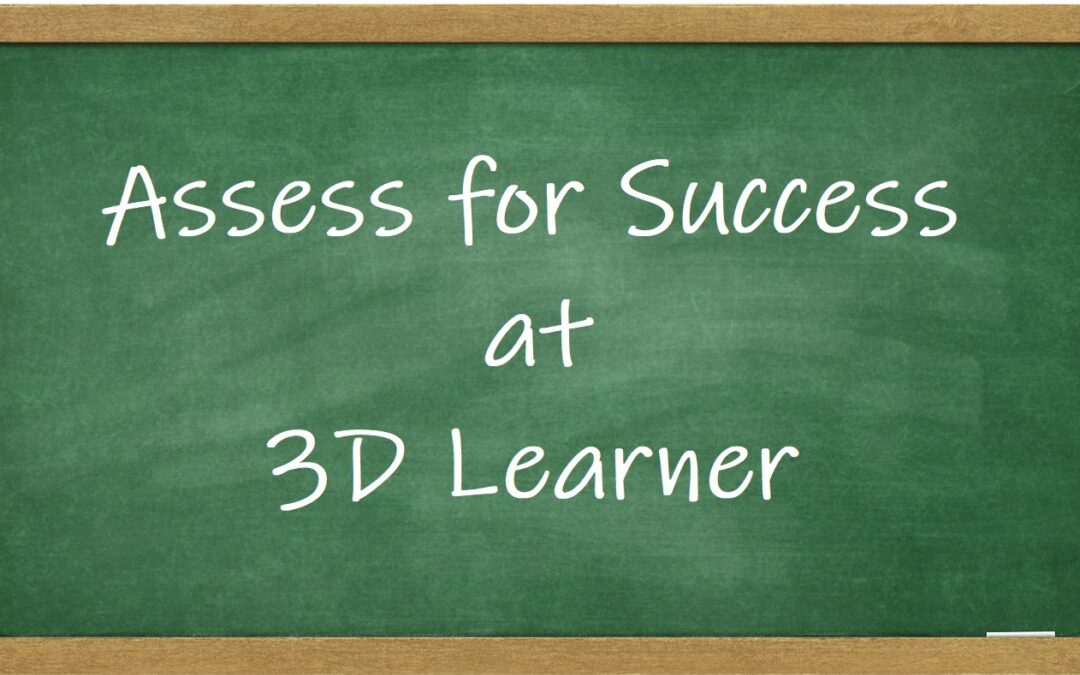
Students today are often struggling with reading fluency, reading comprehension and/or math.
Three of the greatest educational risks are:
- Parents often do not know what their child’s present level of reading fluency, reading comprehension and math skills are at
- Students who learn differently (i.e. neurodivergent, right brain and kinesthetic learners) often fall behind — as neither school based or home school curriculum may be consistent with how they learn best
- Without testing, parents may not be aware of how their child learns best, where their child is strong and where their child struggles
The opportunities for parents include:
- There are real benefits with an assessment that shows you::
- How your child learns best
- What are your child’s strengths and challenges
- What is your child’s present level of performance for reading fluency, reading comprehension and math
- If needed, the assessment can help educators to tailor a program to:
- Capitalize on how your child learns best
- Improve their reading speed, reading comprehension and math skills
- Help you to be the coach your child needs
- How you can help your child be all they can be
How 3D Learner Assesses for Success
Mary called and was not sure about her child’s reading fluency, reading comprehension and math skills were at. She had tried two years of dyslexia treatments. Mary was not interested in labeling, but she was very interested in knowing:
- How her daughter learned best
- What her daughter’s strengths and challenges were
- What was her child’s present level of reading comprehension, reading fluency and math
- If there were significant gaps, could we help her daughter get to grade level or above
- Whether what we offered could improve her child’s baseball and soccer skills. Mary knew that her daughter would be even more interested in help, if it could make her better at baseball or soccer.
Mary shared a few of her frustrations, that included, her daughter:
- Understood stories when Mary read them to her, but struggled with silent reading comprehension
- Read more fluently, but often had difficulty remembering words she had seen and not mastered
- Was good at math, but was now struggling with math word problems.
We then asked Mary what her daughter was good at, Mary shared that her daughter:
- Had an excellent memory for things she had seen and experienced
- Was a good person — who loved playing with younger kids and cared about seniors
- Was good at baseball and soccer but was inconsistent. Three area of concern were:
- Her daughter would sometimes lose focus during a game
- In baseball, she would sometimes hit the ball well, but too often she would pull the ball foul
- In soccer, her shots often went to the right side of the goalie
- Her daughter was frustrated that she was not doing as well as she wanted to
We shared this infographic with Mary and explained how we assess for how the student learns best and whether they have a visual processing, executive function, dyslexia and/or anxiety challenge.
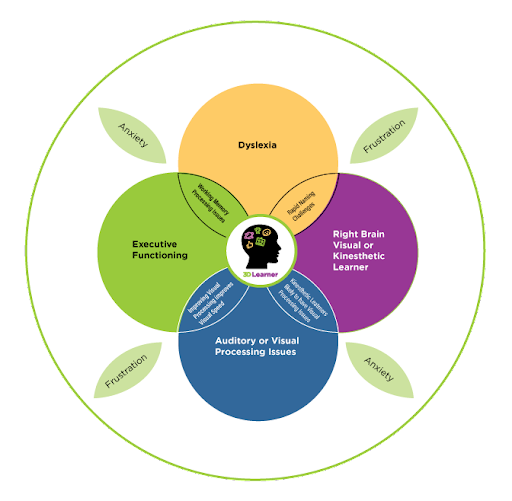
- Many smart struggling kids learn differently. They are often a neurodivergent, right brain or kinesthetic learner, who learn best when they see and experience information. This is important to know, because if they learn differently, it alters the way you teach them, the curriculum you may choose, how you parents them and how one coaches them in sports.
- 74% of the students we see have a visual processing issue – they may see the whole field or the whole room, but their eyes have difficulty converging. This often results in their skipping words and/or liens when reading and having difficulty catching a ball.
- The executive function challenges we often see may include:
- Difficulty sustaining attention and either being hyperactive or impulsive. When we assess a student with the Interactive Metronome ®, we often see that a student’s body moves faster than their brain. In sports, this results in hitting the ball too early. In baseball that would explain pulling it foul or for a right footed kicker, hitting the soccer ball to the right of the goalie. In life, the attention issues may results in a child losing focus when doing work or during a game
- The working memory assessment often shows a student has an excellent visual memory, but has difficulty remembering what they have heard or read
- The Dyslexia Assessment shows where a child is strong and where they struggle. We can assess for Dyslexia and we can also tailor a program that focuses on the key issues
- The reading comprehension assessment shows two different challenges:
- A number of students are below grade level
- Some students are at grade level, but the assessment shows they should and could be well above grade level
- Our math assessment shows us where a student is at and where they struggle
- The anxiety assessment often shows the student gets very anxious in certain situations
Mary asked about the tools we use and whether it is different from what schools and psychologists assess for. We shared that:
- The key assessment tool we use is the Structure of Intellect Assessment ® that shows how a student learns best, where they are strong and where they struggle.
Comments from a principal, a special educator and a psychologist
- A principal asked a special educator why their public school stopped using this assessment. The special educator said “We are required to find a disability in order to provide services. This assessment does not do that. 3D Learner has the luxury of focusing on tailoring a program to help a student succeed
- A psychologist commented, “I wish we could shift our focus from labeling to how to help a child succeed”
- The Visagraph ® we use to show if there is an eye tracking issue can show both the initial challenge and can be used post training to show the results Here is a video that shows a student’s eye tracking before and after training. He commented,. “I now enjoy reading and do much more of it”
- We use the Mindprint Assessment ® developed by by the University of Pennsylvania to assess executive function skills
- We use a Woodcock Johnson ® Reading Comprehensive Assessment
- We use the Core Dyslexia Assessment ® developed by the University of Florida to assess phonics, phonemic awareness and reading fluency. It also helps us to see if the child has dyslexia,
- We use the Perceptions Math Assessment ®
- We use Heartmath ® to assess for anxiety
When we assessed Mary’s daughter we did find that:
- She was a neurodivergent, right brain or kinesthetic learner who learns best when she sees and experiences information
- Her daughter had a number of skills that were well above grade level, but struggled with a few key skills
- She did have a significant visual processing issue
- Attention was an issue and her daughter’s body was racing faster than her mind This explained some of the self-control and sports related issues
- Her visual memory was excellent, but her auditory memory was weak
- She no longer has significant issues related to reading fluency, but there were some areas where she could benefit from additional training
- Her reading comprehension was a year below grade level
- Arithmetic was not an issue, but that word problems were
- Anxiety was an issue
Mary has the flexibility to prioritize training and her daughter was able to make significant gains over the next six months in reading comprehension, math, attention, visual processing, and self-esteem. Her baseball and soccer skills improved too. Mary commented that knowing my daughter was a neurodivergent learner with visual processing and executive function challenges changed everything, and addressing the whole child changed her life. She also added that by helping to improve my daughter’s baseball and soccer skills, you engaged her in the process.
If you would like to discuss your child’s situation and learn more about how we Assess for Success, you can call us at 561-361-7495 or click here to schedule an Assess for Success Conversation. Note, these assessments can be done in person or via zoom.

When a parent is told that their child is at risk of being retained, their initial response is often full of emotion. Frustration, anxiety and even guilt are felt. We can relate to that. As parents and Directors of 3D Learner, we strongly encourage parents to take a proactive approach to helping your child succeed. At 3D Learner our goals are to:
- Help parents realize that third grade retention risks are not your fault.
- There are a number go Good Cause Exemptions to help your child to avoid third grade retention and to be promoted
- Help you be an Informed, Empowered and Proactive parents who:
- Work together to help your child to be promoted
- Understands the depth of your child’s reading comprehension and related issues
- Becomes even more aware of your child’s strengths and challenges
- Partners with your child’s school and the right outside professionals to help your child to make significant gains in their reading comprehension and processing skills, so they are promoted and are much more successful in 4th grade and beyond
If your child is at risk for third grade retention or grade retention in any grade, we encourage you to join us for a presentation on March 13th at 9 pm on:
How to Beat Third Grade Retention or Other Grade Retention Risks by
Improving Reading Comprehension
Click here to register or
Call us at 561-361-7495 to discuss your situation or click here to schedule a
Beat Third Grade Retention by Improving Reading Comprehension Conversation
As one mom said, “How is it that after 5 minutes, you appear to understand my son’s strengths and challenges better than people who have known him for years?”
Our advantage is we have been helping bright right brain learners succeed for 27 years.
5 Key Points About Third Grade Retention
1- There are a number of Good Cause Exemptions that can be utilized to help a child to be promoted. The Florida Department of Education has created a valuable Read to Learn Document that can help you understand your options.
2- Most students facing third grade retention are 1, 1.5 or even 2 years below grade level in reading comprehension. If their reading comprehension issue is not addressed, the student is likely to struggle even more in 4th grade. After 3rd Grade, students are expected to READ TO LEARN; there is no more emphasis on reading instruction in the general classroom. That is the time when math, social studies and science require students to understand what they read. It is also a time when the print gets smaller, the pictures disappear and students with reading comprehension really struggle. Conversely, students who make significant reading comprehension gains by 4th grade have done much better.
3- In a small number of cases, third grade retention is right for a child. The child does not have sufficient all-around foundational skills to succeed in 4th grade. These might include cases where the child has a late summer birthday, they may have learning and attention challenges, and they would be better off not being promoted. This past year, we helped a few students where parents chose to homeschool their child, have a catch-up year, and make the decision about promotion later. In Florida, the Florida Empowerment Scholarship provides parents whose child has a qualifying disability to get around $10,000 a year that can be used for tutoring. For other students, there is a Personalized Education Program scholarship for $8000 that can be used for tutoring.
4- Many students facing third grade retention are right brain, kinesthetic or neurodivergent learners, who learn differently than the way most schools teach. These kids learn best when they see and experience information. They may also have dyslexia and/or working memory, processing speed, attention and/or visual processing issues.
5- By capitalizing on your child’s strengths and addressing their challenges, it is often possible to both beat third grade retention and to position your child to be far more successful in 4th grade and beyond.
Note, we have helped third graders to:
- Beat third grade retention and score well above grade level by 4th grade
- Improve their reading comprehension by 3 grade levels in a year
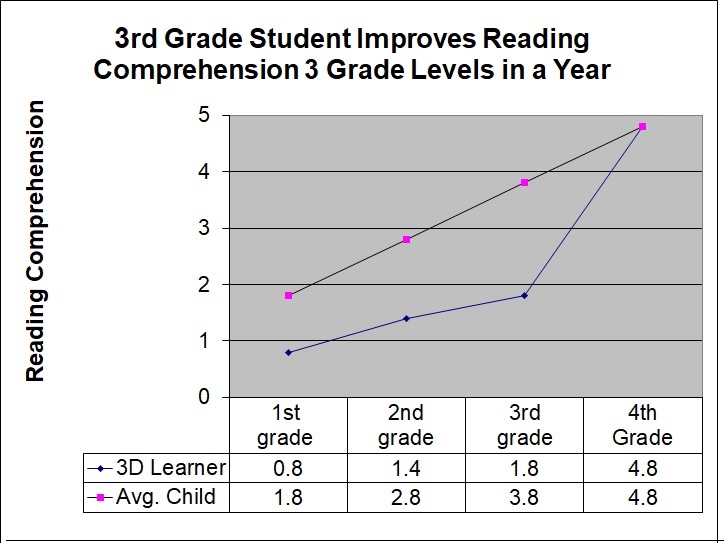
A year later his teacher commented, “He made more progress in a year than any student I have had in 27 years of teaching”
- Improve their academic and athletic skills, boost their self-esteem and lower their anxiety
If your child is at risk for third grade retention or grade retention in any grade, we encourage you to join us for a presentation on March 13th at 9 pm where we will be discussing:
How to Beat Third Grade Retention or Other Grade Retention Risks by
Improving Reading Comprehension
Click here to register or
Call us at 561-361-7495 to discuss your situation or click here to schedule a
Beat Third Grade Retention by Improving Reading Comprehension Conversation

The right brain neurodivergent learner is a student who:
- Learns best when they see and experience information
- Have difficulty understanding abstract words
- Often have visual processing issues
- Have not been taught to draw out a problem.
- May be good in math, but often struggles with Algebra.
For many right brain neurodivergent learners, math can either be:
- Very easy until they hit Algebra, and then it gets much harder
- Difficult until they hit Algebra, at which point it becomes incredibly difficult
For the right brain neurodivergent learner. Algebra is often very hard. At 3D Learner, we recognize that with a visual hands-on approach, the right brain neurodivergent can often significantly improve their:
- Algebra grade and easily pass their end of course exam
- ACT or SAT Score
- Chances of getting a scholarship. In Florida, for example, one needs a 1210 and 1340 score on their SAT to earn a Bright Futures Scholarship that could be worth $20,000 to $30,000 over 4 years. For many students, by increasing their math SAT score by 100, 150 or 200 points, they can now get a $20,000 or even a $30,000 scholarship.
- Chances of getting into the best possible college or university. Especially for those students striving to get into top universities, one often needs an SAT score of close to or over 1500
Algebra can be difficult for right brain neurodivergent learners because:
- Many more students have struggled in math since the pandemic, and Algebra is just that much harder when the student lacks a solid foundation in math.
- The wording of many problems is confusing. Right brain neurodivergent learners often have problems with abstract words like greater than, less than, except, etc. It is important that they learn this vocabulary.
- Many right brain neurodivergent learners have not been taught to draw out their work. This is an incredibly important skill, especially on the harder problems.
- On the SAT and ACT tests, the wording is often confusing. The right brain neurodivergent learner often misreads the questions and does not have sufficient time to complete the test.
- They often have done the math work in their heads and do not see the need to write out their work. Given the complexity of some algebra problems, this leads to many mistakes.
- They often do not check their work. They often assume they have it right. One SAT student got a 610 on a practice Math SAT. Without any additional help, I had him check his work on another test. This time he got a 690. It often helps when a third party teaches your child how to check their work.
- Algebra often requires abstract thinking and understanding of symbols to represent quantities and relationships. Right brain neurodivergent learners, especially those with a preference for right brain thinking, may struggle with this abstract concept, as they tend to excel more in concrete, visual, or intuitive thinking processes.
- Executive Functioning: Algebra requires strong executive functioning skills such as organization, planning, and working memory. Right brain neurodivergent may experience difficulties with these skills, which can hinder their ability to solve algebraic problems efficiently.
- Many right brain neurodivergent have a visual processing challenge. This may lead to multiple errors including:
- Missing minus and division signs
- Misaligning their numbers so they make “stupid” mistakes
- Taking longer to complete the test and not answering all the questions
At 3D Learner, we have been helping bright right brain neurodivergent learners to dramatically improve their math Algebra grades, their Math SAT scores and change their trajectory for over 25 years.
If you would like to discuss how you can help your child to significantly improve their math and Algebra grades, SAT scores and their chances to get into a better college or university, call us at 561-361-7495 or click here to schedule and Algebra Stress to Success conversation.

(call us at 561-361-7495 and ask about our assessment special)
(Especially for right brain, kinesthetic and neurodivergent learners)
How to improve reading fluency and reading comprehension is a goal for many students who qualify for the Florida Empowerment Scholarship and the Personalized Education Program.
The term dyslexia has attracted a great deal of information. Many parents invest in a dyslexia treatment. Frequently this will improve a child’s reading fluency (i.e. how fluently a child reads out loud), but reading comprehension challenge persists. At 3D Learner, we focus on how to improve reading fluency and reading comprehension with an integrated, engaging and effective program. We also address executive function, visual processing and anxiety challenges.
3D Learner offers a focused assessment that can be done in person or online, that addresses the following questions:
- Whether your child is a right brain, kinesthetic or neurodivergent learner. For the child who learns differently, it really helps to know that and to find a program that leverages their strengths, identifies and addresses their challenges and helps your child to improve both their reading fluency and reading comprehension.
- Whether your child has dyslexia — and where their reading fluency is strong and where they struggle.
- What your child’s present level of reading comprehension is
- Whether your child has a visual processing challenge — over 74% of the students we see either skip words and/or lines when reading
- How to improve your child’s reading fluency and reading comprehension
To discuss how to improve your child’s reading fluency and reading comprehension call us at 561-361-7495 to discuss your specific situation.
3D Learner — Offering a Strength Based Program to Improve Reading Fluency and Reading Comprehension for over 26 years
Since 1997, 3D Learner has been helping students to improve their reading fluency and reading comprehension. With what has become known as the Florida Empowerment Scholarship for Unique Abilities and the Personalized Education Program for others, we have been able to help more students with Florida’s vastly expanded voucher program.
3D Learner specializes in helping the right brain, kinesthetic or neurodivergent learners who often:
- Remembers details from places visited, even from years ago
- Learns best when they see and experience information
- Are a lot smarter than present results would indicate
- Often have two, three, four of the following challenges:
- They skip words and lines when reading
- They can focus on that which interests them, but lose focus when the work is hard or frustrating
- They have difficulty remembering what they heard or read
- Anxiety and frustration often occur when doing academic work
For voucher students, we are offering a two-hour assessment – tutoring – feedback session when you purchase one hour from 3D Learner through the Florida Empowerment Scholarship or the Personalized Education Program. You can either:
- Purchase an hour and call us at 561-361-7495 or
- Call us at 561-361-7495 to discuss your specific situation.
3D Learner Results for Right Brain, Kinesthetic and Neurodivergent Students
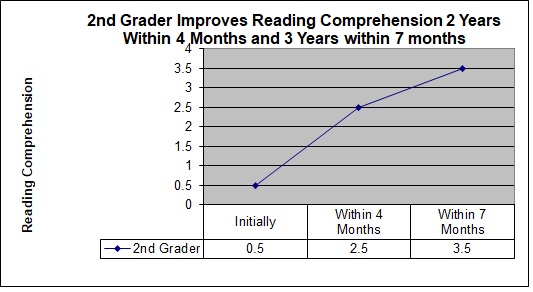
We have helped a second grader to improve her reading comprehension 3 grade levels in 7 months
and a 9th grader to improve her reding comprehension 4 grade levels in 6 months.
A homeschool student had been through 2 years of dyslexia treatments, but her comprehension was still at the kindergarten level, even though she was in 2nd grade.
With our help, she was able to:
- Significantly improve her reading fluency
- Improve her reading comprehension by 2 grade levels in 4 months and by 3 grade levels in 7 months
- Significantly improve her attention, visual processing, and confidence
- Read 23-chapter books on her own, after not having read one previously
- Go from a struggling dancer to the top group, because of their improved neural timing, working memory and confidence
A 9th grader improved her reading comprehension by 4 grade levels in 6 months.
Her mother commented: “Her reading comprehension has increased four grade levels, and she has increased her rate of reading by 100 words per minute. Her ability to comprehend what she is reading has also improved and she doesn’t hate reading for the first time in her life”.
For voucher students, we are offering the assessment – tutoring session with a separate parent consult, if you purchase one hour from 3D Learner through the Florida Empowerment Scholarship or the Personalized Education Program. You can either:
-
Purchase an hour and call us at 561-361-7495 or
-
Call us at 561-361-7495 to discuss how to improve your child’s reading fluency and reading comprehension and more.
For non-voucher students, we are offering this $250 value for $124.

The neurodivergent, right brain or kinesthetic learner in 4th, 5th and 6th grades missed critical time in school during the pandemic. They often struggle with reading fluency, reading comprehension, math word problems, processing issues and may struggle with anxiety and frustration.
This blog post focuses on the significant risks and opportunities for smart kids who learn differently, the key strengths and challenges of the neurodivergent, right brain or kinesthetic learner, examples of our successes and the pivotal role parents play.
If you would like to discuss how to help your child succeed, you can either
call us at 561-361-7495 or schedule a call at “Let’s Discuss How to Help Your Child Succeed”
9 key points we wish to stress are:
- Many smart struggling students are neurodivergent, right brain or kinesthetic learners. These are the kids who learn best when they see and experience information. They are often a lot smarter than present results would indicate. They often have a sea of strengths and challenges. Most school based and outside interventions fail to recognize and capitalize on these strengths and the need to engage the student in the learning process. You can access our no cost screening tool at
Is My Child a Neurodivergent, Right Brain or Kinesthetic Learner?
- There is a significant risk that things will get worse.
- These students can do far better with an integrated, engaging and effective system that significantly improves reading fluency, reading comprehension, math skills, attention, executive function skills, and confidence, while reducing anxiety. We have found it important to:
- Tailor solutions to meet the student’s needs
- Leverage their strengths and engage them in the learning process
- Identify and addresses their challenges
- Lower their anxiety and boost their self-esteem
- Helps parents to secure the help the schools can provide
- Helps the parents to be more effective coaches and advocates for their child
- Psycho-educational testing by itself is valuable, but the benefits are much greater when it leads to a transformational program that allows your child to make significant progress.
- For those students with dyslexia, a dyslexia treatment is often recommended. The Science of Reading, that focuses on improving reading fluency, may be an integral part of the solution, but most of these programs are not designed to improve:
- Vocabulary and reading comprehension
- Math and writing skills
- Attention, working memory and processing speed — executive function skills
- Your parenting skills
At 3D Learner, we address dyslexia and reading fluency issues with the UFLI Program ®, a dyslexia intervention developed by the University of Florida Learning Institute. It is an excellent option, that allows us to tailor a solution to meet your child’s specific needs.
- For those students with ADHD, Attention Deficit Disorder, ADHD medication is often recommended. We use the Interactive Metronome ® to improve attention. This can either be used to complement medication or as a stand alone offering. Our students have done very well with the Interactive Metronome, that has several unique benefits:
- It builds neural connections in the brain, that are still there years later.
- It works all day, so you do not have the problem of your child having difficulty paying attention when doing homework, because the medication has worn off.
- It also improves handwriting, reading and math fluency, sports skills and impulse control.
Note, the Interactive Metronome produces very different results, depending on the provider. We have used it for over 24 years with excellent results.
- If your child is a neurodivergent, right brain or kinesthetic learner, it is up to you to find the solution that can help your child be all they can be.
- 3D Learner has helped thousands of neurodivergent, right brain and kinesthetic learners to make significant gains in months.
If you would like to discuss how to help your child succeed, you can either
call us at 561-361-7495 or schedule a call at “Let’s Discuss How to Help Your Child Succeed”
One mom commented, “How is it you know my child better after less than 10 minutes than people who have taught him for years?. Our response, “That is our focus, helping kids who learn differently succeed.”
Her son gained 3 years in his reading comprehension is less than a year. His teacher said, “Tyler made more progress in a year than any child I have had in 27 years of teaching”.
Specific challenges may include some of the following
- Reading fluency and reading comprehension. Reading comprehension gaps often widen and start to impact math, social studies and science,
- Writing. Handwriting may be an issue, but putting their thoughts on paper is almost always an issue
- Math. Some are good at arithmetic, but math word problems are often a nightmare
- Processing skills. They often have an excellent memory for what they have seen and experienced, but have great difficulty remembering what they heard or read
- Attention. They can often hyper-focus on video games or something they like, but they often have great difficulty paying attention to that which is boring or frustrating
- Visual processing. The neurodivergent, right brain or kinesthetic learner often has good peripheral vision, that is seeing the world around them. Their challenges often include skipping words and lines when reading, missing signs when doing math problems and with handwriting and misaligning their math work, that results in mistakes
- Anxiety, frustration and lack of confidence. These have always been a problem for many kids, but these issues are more common and more significant with this group in this post pandemic era.
- In some cases, being rebellious. These students often are in fight or flight mode and sometimes the relationship with their parents are really strained.
There is a risk that academic, frustration and anxiety issues will worsen, as the work gets harder and hormones kick in.
As parents, there are several key points to recognize:
- School programs and accommodations can help, but they rarely help a neurodivergent, right brain or kinesthetic learner come near their potential
- If your child learns differently, they may have the potential to do far better within months
- If you would like to discuss how to help your child succeed, you can either
call us at 561-361-7495 or schedule a call at “Let’s Discuss How to Help Your Child Succeed”
The Rebellious Baseball Player who was a Neurodivergent Learner
Alan seemed like a normal kid, until you realize that he had been suspended twice by his school. His parents complained that he did not read much, he was at times confrontational and even though he liked baseball and was good at it, he often had games where he was off.
They were also upset that despite an above average IQ, he was now in classes with a lot of kids who were struggling academically and were not a good influence on Alan. A therapist referred the parents to 3D Learner.
The parents were aware of the emotional control issues. They were not aware of how far behind their son was, that it could get worse and that there was a significant opportunity for growth.
Alan was not interested in school, but his ears perked up when we told him we could improve his baseball skills. His assessment showed:
- His reading comprehension was four years below grade level
- He had difficulty paying attention, but the real issue was his impulsive behavior. When he tried to match a beat and he was off, he got frustrated and at times angry. He shared that this anger and impulsivity happened in a number of settings – including the two where he was suspended
- He skipped words and lines when reading and read very slowly
- He learned best when he saw and experienced information
The goals we all agreed to where to:
- Improve his reading comprehension 3 grade levels in 6 months
- Behave well in school, even when he was frustrated
- Get out of remedial reading for 7th grade and to be in classes with his friends
- Increase his reading speed from 110 to 200 words per minute
- Increase his batting average from 263 to 350
- Increase the number of home runs from 1 to 5
- Work respectfully with his parents and to have a nonverbal cue, when he felt himself losing it
The actual results were:
- He improved his reading comprehension 4 grade levels in 4 months
- His behavior was far better at home and in school
- He improved his reading speed to 206 words per minute
- He did get into regular English classes and got a B in English
- His batting average improved from 263 to 403, which was the highest on his team
- He hit 10 home runs that spring and it led the league
A few of the keys to his success:
- His parents saw the potential, were committed to his success and really liked that we could improve his academic, his behavior and his baseball skills. We are always looking for a hook to engage students.
- We taught him how to pause when he was frustrated
- Our hands-on program engaged him and he learned how to visualize what he read
- We improved his attention using the Interactive Metronome ® and showed him how to stay calm, even when he made mistakes
- We improved his visual tracking
- He saw changes within weeks in his reading, his behavior and his baseball performance
The More Typical Neurodivergent, Right Brain or Kinesthetic Learner
Ben could put together Legos for hours, had an incredible visual memory, but in 5th grade, his comprehension was two years below grade level, he often lost focus and he avoided reading. Note, if you only read at 110 words per minute, you might avoid reading too. Ben also suffered from anxiety challenges.
His parents saw an article with this graph that showed that secondary school students with learning disabilities often fall 3 to 4.9 years below grade level and some fall even further behind.
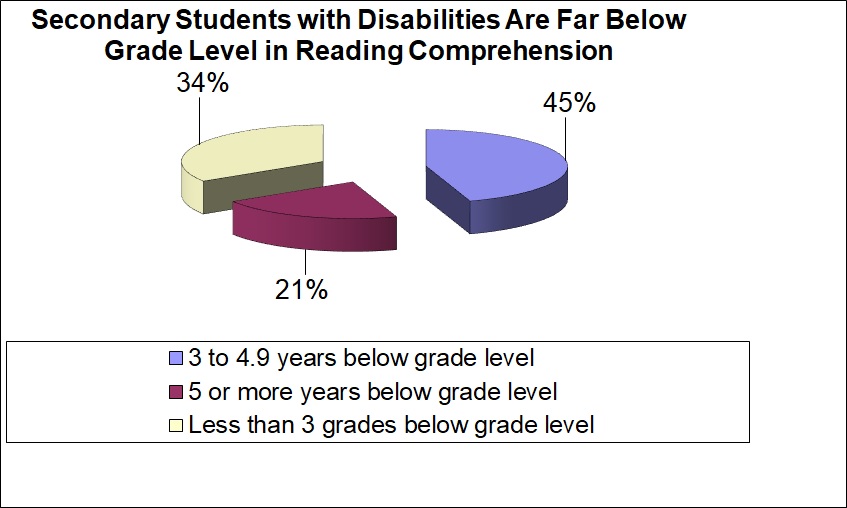
We assessed Ben and it confirmed:
- A significant anxiety challenge — his heart rate jumped to 142 beats per minute when we just mentioned taking an English Language Assessment
- He did lose focus
- His reading comprehension was two years below grade level
- He clearly learned differently and was a neurodivergent learner and very creative.
- He was motivated to succeed
The goals we set were to:
- Improve his comprehension 3 grade levels in 6 months
- Decrease the time it took to get homework time from 2.5 to 1.5 hours
- Have him stay calm
The results with Ben were good:
He improved his reading comprehension 3 grade levels in 4 months.
- He decreased his homework time to 1.25 hours
- He was much calmer
Even better, Ben wound up reading 4 long books over the next 3 months and went on to win an award as the best reader in his middle school.
Smart Neurodivergent Students
Alexa’s mom was really frustrated. Alexa had a 118 IQ, well above average. Alexa’s reading was at the 48th percentile and she was very shy and afraid to ask questions.
Mom had asked the principal what she could do, and the principal suggested there was no need to do anything, he then added, “Someone has to be average”.
Mom became a Mom on a Mission.
She heard us speak on GOLD Students — Gifted Operating with a Learning Difference. We focus on the student’s gifts and when we do, many neurodivergent, right brain and kinesthetic learners do far better.
Our assessment confirmed that Alexa both learned differently and was on grade level for reading comprehension. It also showed she lost focus and skipped words and lines when reading.
The goals were to:
- Significantly improve her attention and visual processing
- Get Alexa to ask 3 questions a day the first month, 4 a day the second month and 5 a day the third month
- To improve her performance on the SAT from the 48th to the 85th percentile
The results were Alexa:
- Made significant improvements in her attention and visual processing
- Asked 4 questions a day the first month, 8 questions a day the second month and we stopped counting
- Improved her reading comprehension from the 48th to the 95th percentile
- Became an extrovert and was a leader in the band in high school
7 Important Things to Consider About a Neurodivergent, Right Brain or Kinesthetic Learner in this Post Pandemic Period
- Too often the neurodivergent, right brain or kinesthetic learner’s strengths and either not identified or the solutions do not capitalize on their strengths
- Capitalizing on their strengths is often a key to improving their attitude and lowering their anxiety
- The learning gaps are more significant than ever, the gaps often widen and schools rarely close the gap
- Reading fluency and reading comprehension may both often issues and you want to address
- Executive function challenges (i.e. attention, working memory and processing speed) need to be both identified and improved
- Visual processing is often an issue
- It takes informed, empowered and proactive parents to make the difference
If you would like to discuss how to help your child succeed, you can either
call us at 561-361-7495 or schedule a call at “Let’s Discuss How to Help Your Child Succeed”
Note, it is often up to parents to put their neurodivergent, right brain or kinesthetic learner on their Pathway from Stress to Outrageous Success

In our first article on” Getting it Right for Your Child”, we discussed several key points:
- Reading fluency and reading comprehension gaps are often significant — especially for the right brain, kinesthetic or neurodivergent learner, who learns best when they see and experience information. Note, understanding math and anxiety are often issues for these students, too.
- These gaps often widen over time. A student who is 2 years below grade level in reading comprehension in 4th grade may be 3 or 4 years below grade level by the time they enter high school.
- The upside potential is often far greater than parents realize. We have seen students we help improve their reading fluency dramatically and improve their reading comprehension by 2, 3 or even 4 grade levels within months.
- Anxiety and frustration are bigger problems than at any point. In this post pandemic period, more kids are anxious and frustrated, as they missed the foundation skills needed for success. When a child is anxious, they cannot learn; they are constantly doubting what they can do.
In recent discussions with teachers and other professionals and based on our own experience, 4th and 5th graders are especially at great risk, because they missed the key foundational skills needed for success due to school disruptions during COVID, during these critical early years of schooling.
- Parents play a vital role in this equation. The right brain, kinesthetic or neurodivergent learner often has a unique set of strengths and challenges that will require a tailored approach for the child to reach his or her full potential.
In this blog post, we will discuss the benefits of both assessing for a disability and assessing for success. Many parents call us after they have had a psychoeducational assessment done by an outside professional. This is an excellent time to leverage your investment by finding the right intervention to help your child succeed.
We offer a no cost consult you can access by calling us at 561-361-7495
Parents Play a Critical Role in Getting the Right Assessments and Interventions, Especially for the Right Brain, Kinesthetic or Neurodivergent Child
Getting a diagnosis for a “disability” is often critical for several reasons:
- Public and charter schools require a student to have an identified disability before a student can qualify for special education services. This is sometimes hard for parents to hear. They fear their child will be labeled- when in reality, they learn differently- are smart- but the system is not set up to help kids like this, especially when there is often more than one issue that needs to be addressed.
- As a Mom and an Educator, the emotional turmoil my kids experienced was the deciding factor that WE, AS PARENTS, needed to do something different! We needed to take the lead in finding what our kids were good at as well as find the professionals that understood and connected with them. Just getting a person that had specific training in a specific kind of program did not work. WE HEAR THIS ALL THE TIME FROM PARENTS. It is vital to understand the whole child and work together as a team.
- Voucher programs, like the Florida Empowerment Scholarship for Unique Abilities, require a student to have a specific qualifying disability before a private or homeschool child can qualify for this program that can be worth $10000 or more for a student per year.
- All schools require a qualifying disability to get accommodations. We can help you understand the process and how to best maneuver through it to get the help your child needs. It is important to remember that schools cannot always handle multiple issues: especially processing issues.
Too often schools delay the evaluation process. They frequently say they must complete the Response to Intervention (RTI) or Multi-Tiered System of Supports (MTSS) process before they will evaluate a child. Here is a link to a blog post that discusses how RTI cannot be used to delay or deny an evaluation and a sample letter to expedite the process.
Our single biggest mistake with our own kids was not recognizing that they were both right brain, kinesthetic and neurodivergent learners who learned best when they saw and experienced information. Too often assessments do not recognize these strengths. The good news is that more and more private psychoeducational evaluations are identifying these strengths.
The three reasons it is important to identify if your child is a right brain, kinesthetic or neurodivergent learner are that these students::
- Often struggle for years, because their strengths are not leveraged
- Can often make far greater gains, when their strengths are leveraged
- It may make you a far more effective coach and advocate for your child
To help you understand if your child is a right brain, kinesthetic or neurodivergent learner, download our screening tool. We recommend you complete this with your child — some of their answers may surprise you.
Discovering your child is a right brain, kinesthetic or neurodivergent learner is often the critical first step to unlock your child’s potential. If you find your child is a right brain, kinesthetic or neurodivergent child who learns differently and you want to discuss a strength-based approach to help your child succeed in months, give us a call at 561-361-7495
Common Challenges for Right Brain, Kinesthetic or Neurodivgent Learners
The neurodivergent learner often has challenges with executive function issues, dyslexia, auditory/visual processing difficulties and/or anxiety.
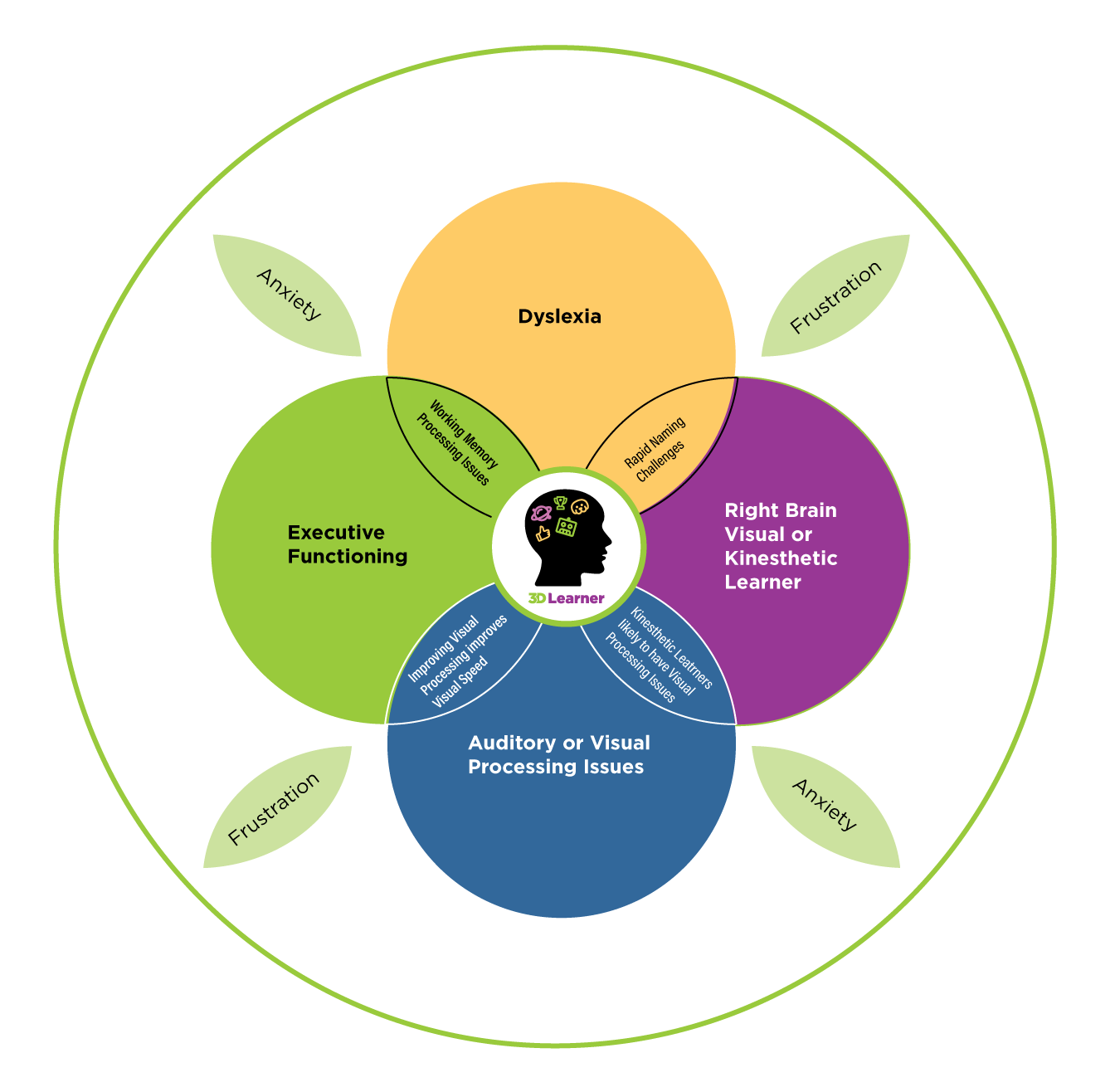 The right assessment can identify specific strengths and cognitive weaknesses
The right assessment can identify specific strengths and cognitive weaknesses
allowing for tailored interventions and support.
For individuals with executive function challenges, an assessment may include tasks that evaluate working memory, processing speed, planning and attention. This can help educators and support professionals understand the specific areas where the individual may need assistance. We use the Mindprint Assessment ® developed by the University of Pennsylvania that identifies executive function strengths and challenges.
For 25 years, we have used the Interactive Metronome ® to assess and address attention issues. This assessment often allows both parents to see the attention challenge in action. The Interactive Metronome is an excellent tool to improve attention and it also reduces impulsivity and hyperactivity and improves handwriting, sports performance and math and reading fluency.
At 3D Learner, we use the Core Assessment from the UFLI ® program to assess for dyslexia and identify specific strengths and challenges. This program was developed by the University of Florida Literacy Institute and was based on the Orton Gillingham model. This assessment allows us to tailor a treatment to the specific issues a child has.
In the case of auditory or visual processing issues, assessments may focus on tasks that assess how well an individual processes and interprets auditory or visual information. Understanding these challenges can guide the development of strategies and accommodations to support learning. We use a Visagraph ® that shows how the student’s eyes track when reading. Here is a link to a video that shows how a student’s eyes tracked before and after the intervention.
The 3D Learner Assessment Results in a Tailored Solution
At 3D Learner, our goal is to help a student to achieve significant gains in months. All the tools we use have proven to be valuable in tailoring a solution to meet a student’s needs. After we do an assessment, we then review the results and if appropriate agree on specific goals and a plan to help your child to make significant gains in months. This works
especially well for the right brain, kinesthetic or neurodivergent child who learns differently, Note, we can also tailor a program for students with executive function, attention, visual processing and/or math challenges.
We offer a no cost consult you can access by calling us at 561-361-7495
Note, the right brain, kinesthetic or neurodivergent child often has dyslexia, ADHD and other executive function challenges. What is missing is that these students often learn differently and have visual processing issues. We strongly recommend leveraging these two tools to screen to see if your child:
Again, we recommend doing these assessments with your child, as their answers may surprise you.


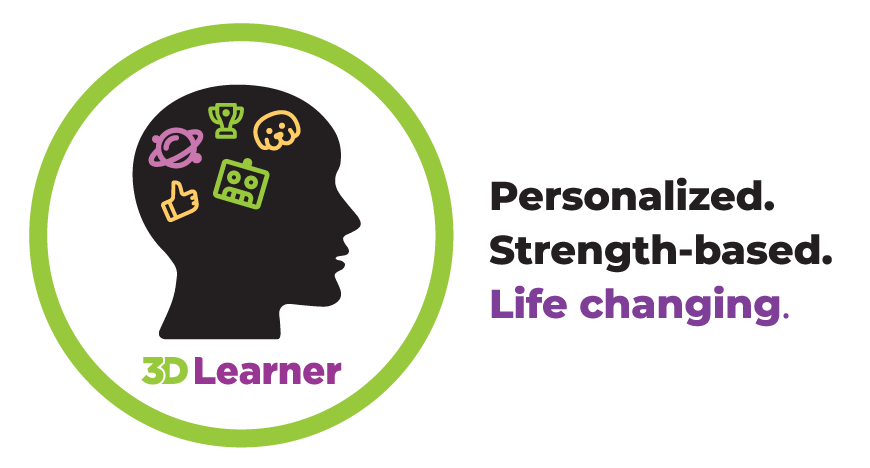
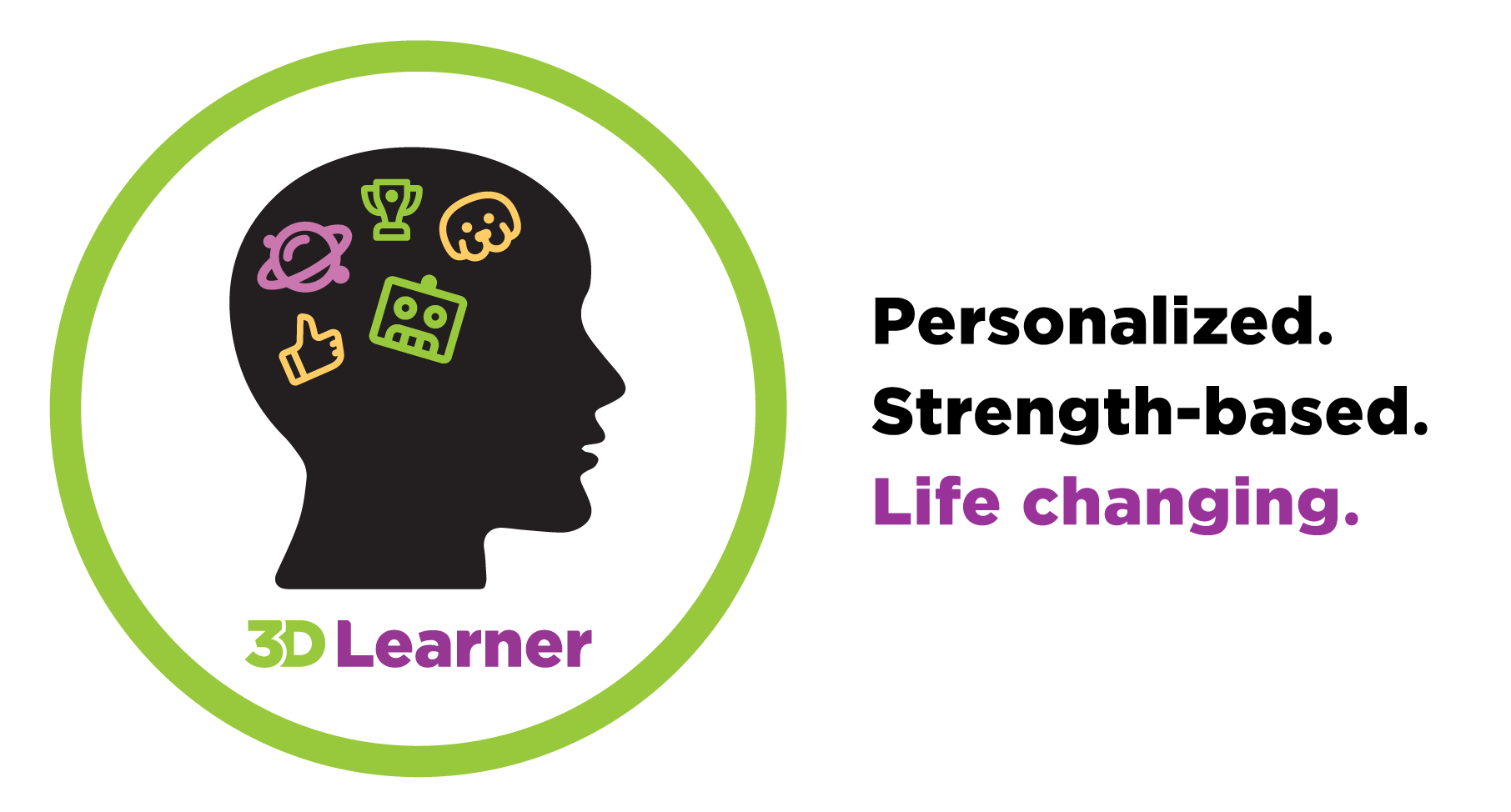









Recent Comments